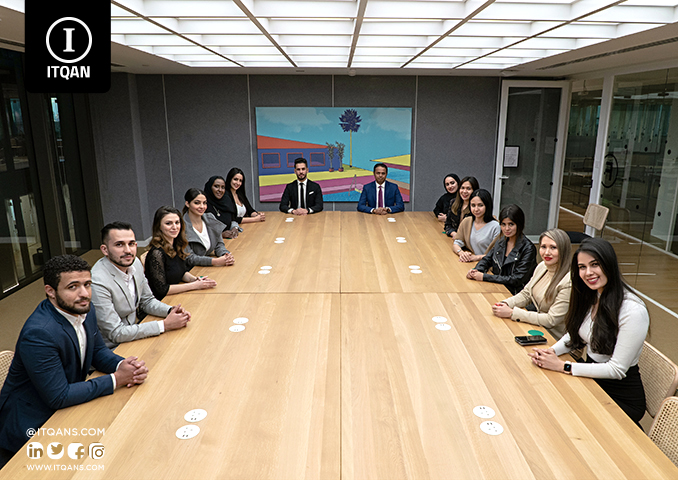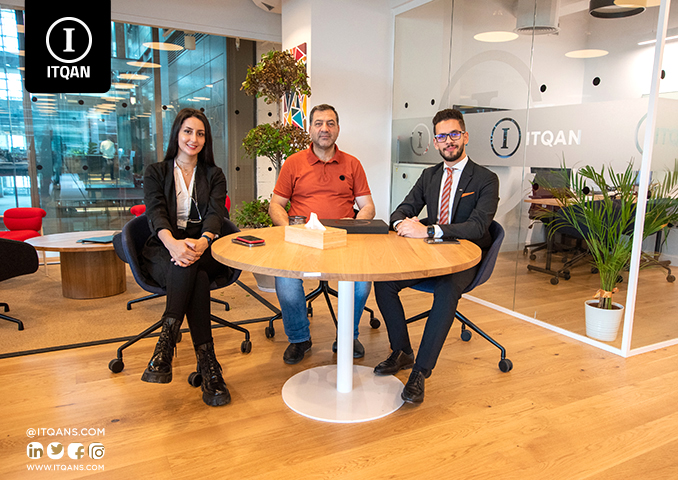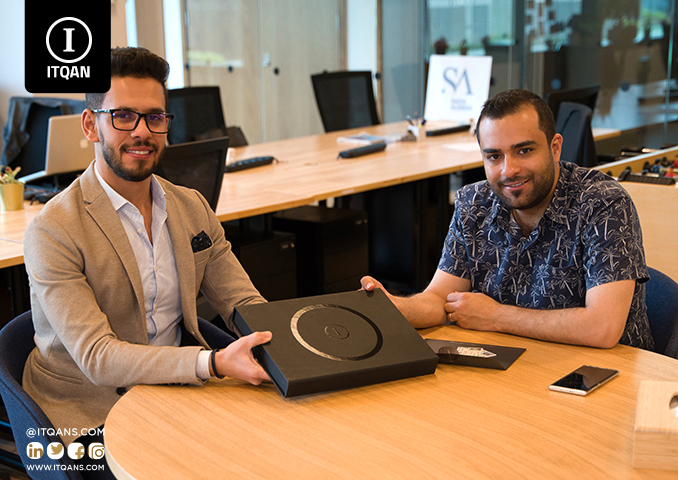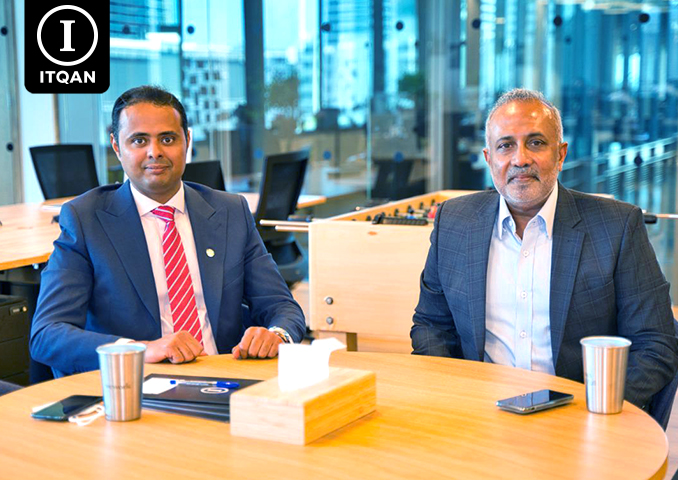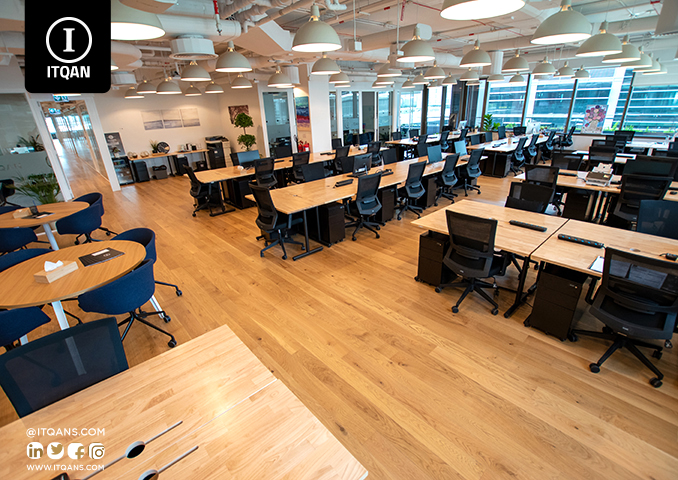Free Zones for Investment in the UAE, Free Zones in the UAE are among the most prominent investment destinations that provide an ideal business environment for investors from all over the world. Thanks to the advantages and facilities these zones enjoy, the UAE has become a major center for attracting foreign investments and promoting commercial activities. Free zones offer a variety of incentives that make them an attractive option for individuals and companies alike, ranging from comprehensive tax exemptions to flexibility in administrative and operational procedures. Free zones provide an advanced investment environment that combines modern infrastructure, flexible regulations, and effective government support.
By partnering with Etqan, the UAE’s leading free zone investment company , investors can benefit from advanced expertise in establishing companies in these zones. Etqan greatly contributes to simplifying the establishment process by providing comprehensive legal and administrative consultations, preparing the necessary documents, and dealing with government procedures. With the specialized support provided by Etqan, investors can overcome bureaucratic challenges and focus on achieving their business goals effectively.
These zones contribute to enhancing the competitiveness of companies by providing diverse investment opportunities, while providing all the necessary resources to ensure business success. Through a flexible and supportive business environment, investors can make the most of available opportunities and grow in new markets. In cooperation with Itqan Company, your investment in the free zones in the UAE becomes a strategic step towards achieving success and expansion in an advanced and prosperous business environment.

Table of Contents
ToggleDocuments required to establish a company in a free zone
Free zones in the UAE are a great destination for investors looking to establish new companies, thanks to the incentives and facilities they provide that facilitate the establishment process. These zones provide an advanced business environment that supports growth and expansion, and allows companies to benefit from advantages such as tax exemptions, full foreign ownership, and exemption from customs duties. To ensure that the company establishment process runs smoothly and efficiently, it is essential to prepare all the required documents accurately. The required documents vary depending on the type of activity and the free zone, but there is a set of basic documents that most companies need to establish their businesses. Documents required to establish a company in a free zone :
- Passports: Color copies of the passports of all founders, directors and any key investors.
- Headshots: Recent headshots of founders and directors, usually with a white background.
- Lease Contract: A lease contract for an office or facility within the free zone in which the company will be established.
- Business Plan: A document that outlines a company’s business, goals, strategies, and market analysis.
- Registration Certificates: If the company is a branch of a parent company, the parent company’s registration certificates and articles of association must be submitted.
- Articles of Association and Memorandum of Association: Legal documents that outline the company’s organizational structure, the rights and duties of shareholders, and administrative procedures.
- Official Signatures: Signatures of the founders and directors on all required legal documents.
- Special Approvals: Some activities may require additional approvals or permits from the relevant authorities in the free zone.
- Insurance: Documents relating to the insurance of the office or facility, if required by the free zone.
These documents are essential to start the process of setting up a company in the free zones. It is important to review the specific free zone requirements and ensure that all documents are submitted accurately to avoid any delays in the procedures.

Procedures for establishing a company in the free zones
The free zones in the UAE are ideal destinations for investors seeking to establish new companies, thanks to the favorable business environment and distinct investment incentives they provide. These zones provide advanced infrastructure, tax exemptions, and administrative facilities that contribute to accelerating the establishment process and reducing bureaucratic burdens. Establishing a company in one of these zones requires following a set of basic procedures to ensure that the process runs smoothly and efficiently. The procedures vary according to the free zone and the type of business activity, but there are basic steps common to most zones that must be followed to achieve the success of the establishment process. Procedures for establishing a company in the free zones :
- Determine the type of company and business activity: Before you start, determine the type of company you want to establish (such as a limited liability company or a branch of an existing company) and the business activity you will be conducting. Make sure that the activity is compatible with the activities permitted in the free zone you have chosen.
- Choosing a company name: Choose a trade name that complies with local laws and reflects the company’s activity. The name must be unique and not similar to other company names in the same free zone.
- Submitting the registration application: Submit the company registration application to the authority supervising the free zone. The application usually includes information about the founders, directors, and the type of business activity.
- Prepare the required documents: Submit the required documents such as passports, lease agreement, business plan, and articles of association. Make sure that all documents are complete and correct.
- Obtaining the license: After reviewing the documents, the commercial license will be issued by the authority supervising the free zone. It may require payment of the prescribed license fees.
- Open a bank account: Open a bank account in the company’s name at an approved bank. You will need to provide the trade license and other required documents.
- Securing Visas: Apply for work visas for founders, directors and employees. The process may include submitting applications to the immigration department in the free zone.
- Office furnishing: Rent an office within the free zone and start furnishing the workplace as per the free zone requirements.
- Registering the company with government departments: You may need to register the company with some other government departments, such as the Chamber of Commerce or competent authorities, depending on the commercial activity.
By following these steps, you can successfully set up your company in the UAE free zones. It is important to check any additional requirements that may be specific to the free zone you choose to ensure that you are fully compliant with all local regulations.
Learn about investing in the UAE
Free zones in the UAE remain one of the world’s most prominent investment destinations, offering unique and comprehensive benefits to investors. These zones contribute to economic growth by providing a flexible and thriving business environment, where companies can benefit from tax exemptions, easy incorporation procedures, and advanced infrastructure. With the support of Itqan, investors can bypass bureaucratic complexities and make the most of the opportunities available in these zones.
Itqan plays a vital role in facilitating the process of establishing companies by providing specialized consultations, preparing and arranging the necessary documents, and dealing with government procedures efficiently. With Itqan’s extensive experience, investors can get the necessary support to ensure that their business starts smoothly and without complications. This helps in achieving business goals quickly and efficiently, which enhances the ability of companies to expand and grow into new markets.
In conclusion, the free zones in the UAE provide an ideal business environment that contributes to enhancing competitiveness and achieving success. Thanks to the advantages provided by these zones, along with the specialized support provided by Itqan, investors can benefit from the available investment opportunities and achieve their business goals effectively. Partnering with Itqan ensures that investors are on the right track towards achieving success and growth in an advanced business environment, making investing in free zones a strategic and profitable option.
Frequently asked questions about investing in the UAE
What are the free zones in the UAE?
Free zones are special business areas that provide a privileged environment for foreign and local companies, offering incentives such as tax exemptions and customs duty exemptions.
What are the main advantages of investing in free zones?
Benefits include exemption from profits taxes, no personal income taxes, full foreign ownership of companies, exemption from customs duties on exports and imports, and easy incorporation procedures.
Can foreign companies own 100% of the company’s shares in the free zones?
Yes, foreign companies can own 100% of the shares of companies in most free zones without the need for a local partner.
What types of companies can be established in free zones?
Several types of companies can be established, such as limited liability companies, branches, sole proprietorships, and joint ventures, depending on the business activities permitted in each free zone.
What documents are required to establish a company in a free zone?
Required documents include passports, lease contract for the company’s headquarters, business plan, registration certificates for the parent company if it is a branch, articles of association, in addition to any special approvals depending on the business activity.
What are the procedures for establishing a company in the free zones?
The procedures include choosing a company name, submitting the required documents, obtaining a license from the authority supervising the free zone, opening a bank account, and applying for work visas.
Can profits be transferred abroad?
Yes, profits can be transferred abroad without additional taxes, providing flexibility in international financial transactions.


